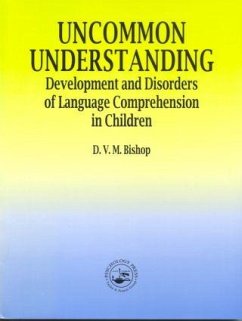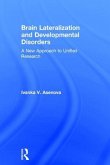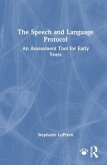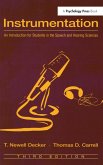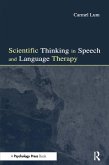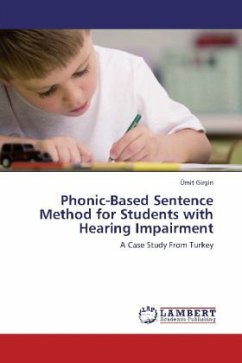A great deal has been written on how children learn to speak, but development of language comprehension has been a relatively neglected topic. This book is unique in integrating research in language acquisition, psycholinguistics and neuropsychology to give a comprehensive picture of the process we call "comprehension", right from the reception of an acoustic stimulus at the ear, up to the point where we interpret the message the speaker intended to convey by the utterance. A major theme of the book is that "comprehension" is not a unitary skill: to understand spoken language, one needs the ability to classify incoming speech sounds, to relate them to a "mental lexicon", to interpret the propositions encoded by word order and grammatical inflections, and to use information from the environmental and social context to select, from a wide range of possible interpretations, the one that was intended by the speaker. Furthermore, although neuropsychological and experimental research on adult comprehension can provide useful concepts and methods for assessing comprehension, they should be applied with caution, because a sequential, bottom-up information processing model of comprehension is ill-suited to the developmental context.
The emphasis of the book is on children with specific language impairments, but normal development is also given extensive coverage. The focus is on research and theory, rather than practical matters of assessment and intervention. Nevertheless, while this book is not intended as a clinical guide to assessment, it does aim to provide a theoretical framework that can help clinicians develop a clearer understanding of what comprehension involves, and how different types of difficulty may be pinpointed.
Hinweis: Dieser Artikel kann nur an eine deutsche Lieferadresse ausgeliefert werden.
The emphasis of the book is on children with specific language impairments, but normal development is also given extensive coverage. The focus is on research and theory, rather than practical matters of assessment and intervention. Nevertheless, while this book is not intended as a clinical guide to assessment, it does aim to provide a theoretical framework that can help clinicians develop a clearer understanding of what comprehension involves, and how different types of difficulty may be pinpointed.
Hinweis: Dieser Artikel kann nur an eine deutsche Lieferadresse ausgeliefert werden.
This is an absolutely excellent book! In a well-argued review, Bishop provides an admirably clear and incisive account of specific language impairments, displaying a remarkable blend of scholarship and clinical insight. In my view, the book cannot be faulted and will become a classic in the field of developmental language disorders... I found the book totally convincing. - Margaret J. Snowling, University of New York
For years I have found myself raising my hand at conferences on children with language impairment to ask "What about comprehension?" It was a great pleasure to read this text, which sets about answering that question for children with specific language impairment, with uncommon clarity, detail, and humor... I enjoyed the author's ability to draw the reader into the questions that challenge researchers, parents, and practitioners alike: Bishop makes us partner to her own researcher's curiosity and enthusiasm for her subject matter... I think the book with serve to frame debate and research for some time to come! - Robin S. Chapman, Waisman Center, University of Wisconsin, Madison
This is an excellent book. Everyone who has an interest in understanding language development should read this book and many readers will want to keep a copy of the book on their shelf for reference. Students of language disorders will find here a brilliant summary of the issues and analyses that are shaping their field. Students of normal development can use this book as a way of gaining a better understanding of the ways in which the intricate structure of language learning can become unbraided. - Brian MacWhinney, Carnegie Mellon University
Bishop does not shy away from controversy, and yet she is even handed, thoughtful and very fair... (She) uses the clearest possible language to make her points, and provides her readers with a roadmap, summaries, overviews, and many other sign posts along the way... The organization of the book as a whole is crystal clear... This book is a major contribution to research, teaching and clinical practice in childhood language disorders. I predict that it will be very successful, and we will all be the better for it. - Elizabeth Bates, University of California at San Diego
For years I have found myself raising my hand at conferences on children with language impairment to ask "What about comprehension?" It was a great pleasure to read this text, which sets about answering that question for children with specific language impairment, with uncommon clarity, detail, and humor... I enjoyed the author's ability to draw the reader into the questions that challenge researchers, parents, and practitioners alike: Bishop makes us partner to her own researcher's curiosity and enthusiasm for her subject matter... I think the book with serve to frame debate and research for some time to come! - Robin S. Chapman, Waisman Center, University of Wisconsin, Madison
This is an excellent book. Everyone who has an interest in understanding language development should read this book and many readers will want to keep a copy of the book on their shelf for reference. Students of language disorders will find here a brilliant summary of the issues and analyses that are shaping their field. Students of normal development can use this book as a way of gaining a better understanding of the ways in which the intricate structure of language learning can become unbraided. - Brian MacWhinney, Carnegie Mellon University
Bishop does not shy away from controversy, and yet she is even handed, thoughtful and very fair... (She) uses the clearest possible language to make her points, and provides her readers with a roadmap, summaries, overviews, and many other sign posts along the way... The organization of the book as a whole is crystal clear... This book is a major contribution to research, teaching and clinical practice in childhood language disorders. I predict that it will be very successful, and we will all be the better for it. - Elizabeth Bates, University of California at San Diego

